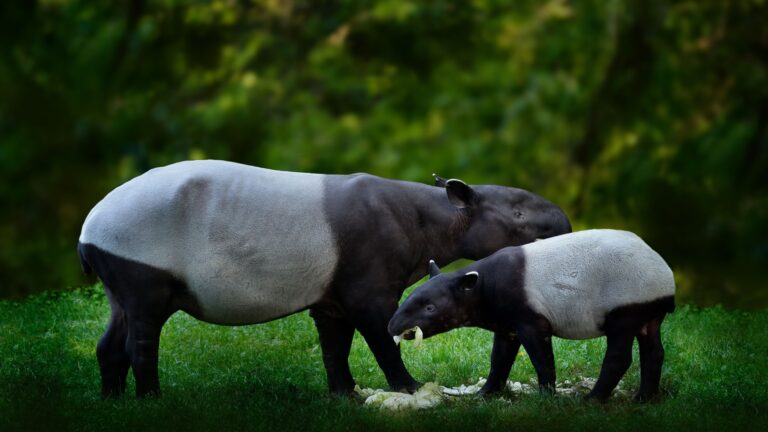The Creepiest Insects In Your Backyard And Why They’re Actually Beneficial
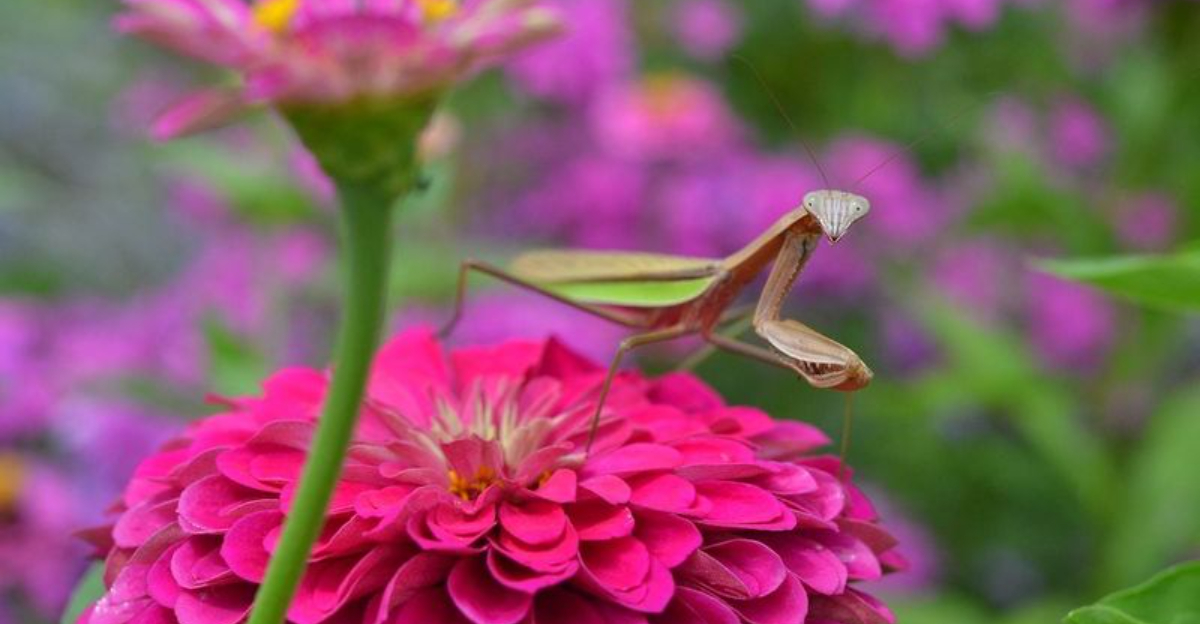
Ever spotted something skittering across your garden that made your skin crawl? Before you reach for that bug spray, think twice! Many of those creepy crawlies in your backyard are actually nature’s little helpers.
From pest control to pollination, these insects work tirelessly to maintain a healthy ecosystem right outside your door. Let’s meet some of these misunderstood critters and discover the surprising benefits they bring to your garden.
Earwigs: The Nighttime Garden Guardians
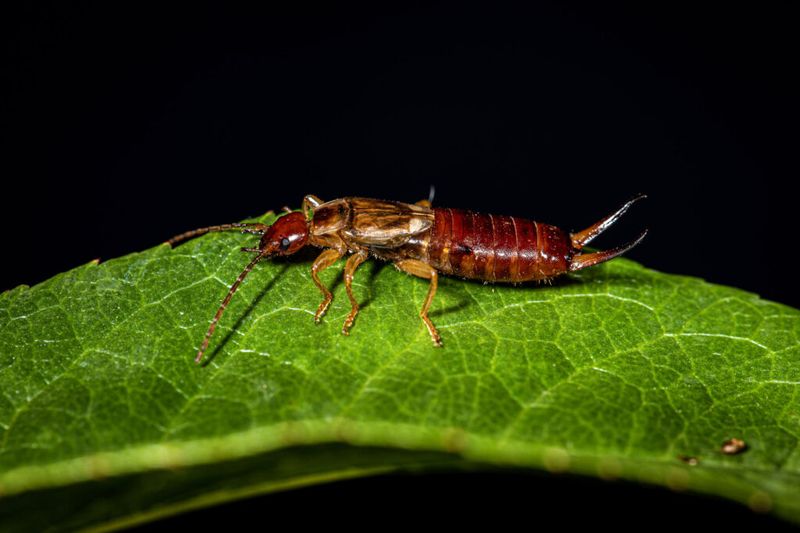
Those scary-looking pincers on earwigs might give you the heebie-jeebies, but these nocturnal insects are actually garden superheroes. They feast on aphids, mites, and other plant-destroying pests while you sleep.
Contrary to old wives’ tales, they won’t crawl into your ears! Instead, they help decompose dead plant material, returning nutrients to your soil. Think of them as your garden’s cleanup crew working the night shift.
House Centipedes: Lightning-Fast Pest Eliminators
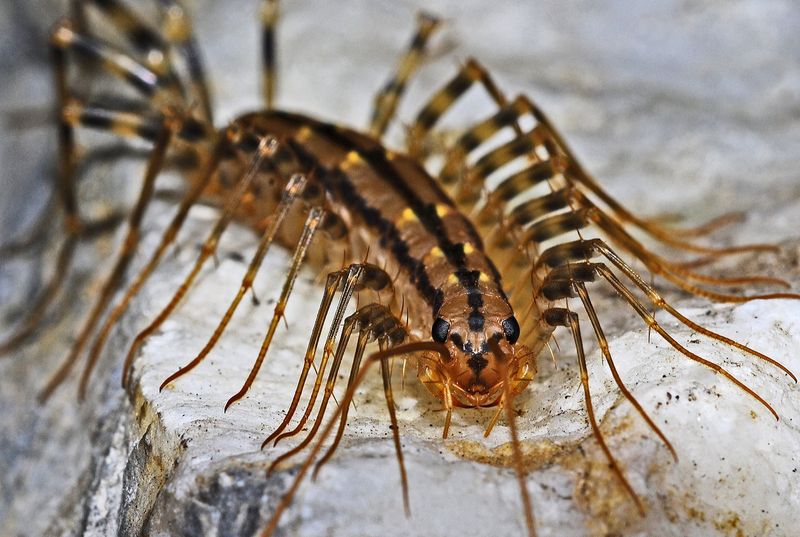
Found one zooming across your basement wall? Despite their alien appearance with numerous legs and surprising speed, house centipedes are actually valuable allies. Each one devours roaches, silverfish, termites, and even bed bugs.
A single centipede can eliminate hundreds of household pests monthly. While their appearance might make you jump, remember they’re working hard as your personal pest control team – completely free of charge!
Assassin Bugs: Nature’s Stealthy Hunters
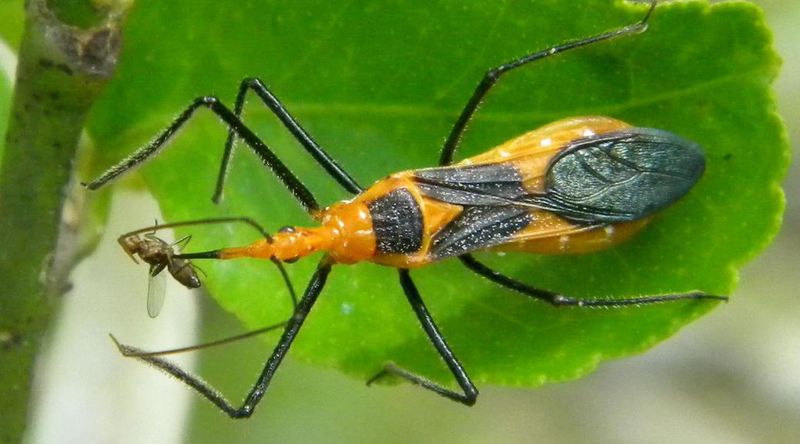
Armed with a lethal proboscis and ninja-like hunting skills, assassin bugs might look like something from a sci-fi horror movie. Don’t let their appearance fool you – they’re valuable garden allies targeting caterpillars, beetles, and aphids.
Some species even specialize in killing destructive stink bugs! Just give these hunters space (they can deliver a painful bite if handled), and they’ll help protect your plants from harmful pests.
Wolf Spiders: Ground-Patrol Exterminators
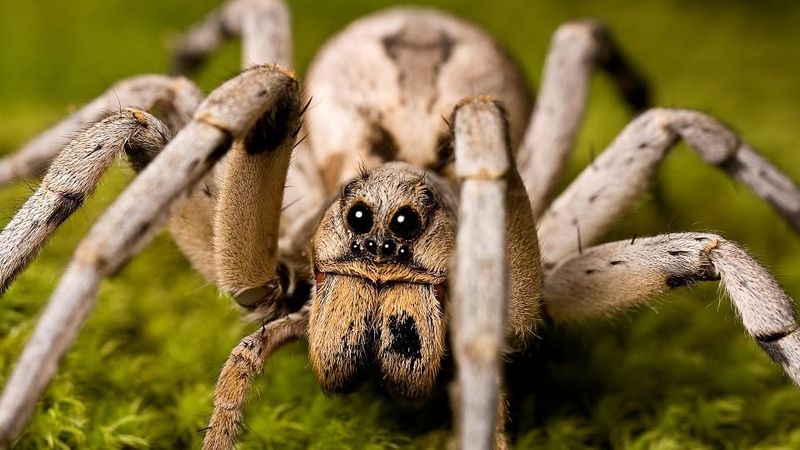
Stumbling upon a wolf spider might make your heart skip a beat. Unlike web-building spiders, these hairy hunters actively chase down prey on your garden floor. Their excellent vision and lightning-fast reflexes make them efficient exterminators of crickets, beetles, and other ground-dwelling pests.
Female wolf spiders even carry their babies on their backs – a rare display of maternal care in the arachnid world!
Praying Mantis: The Garden’s Alien Overlord
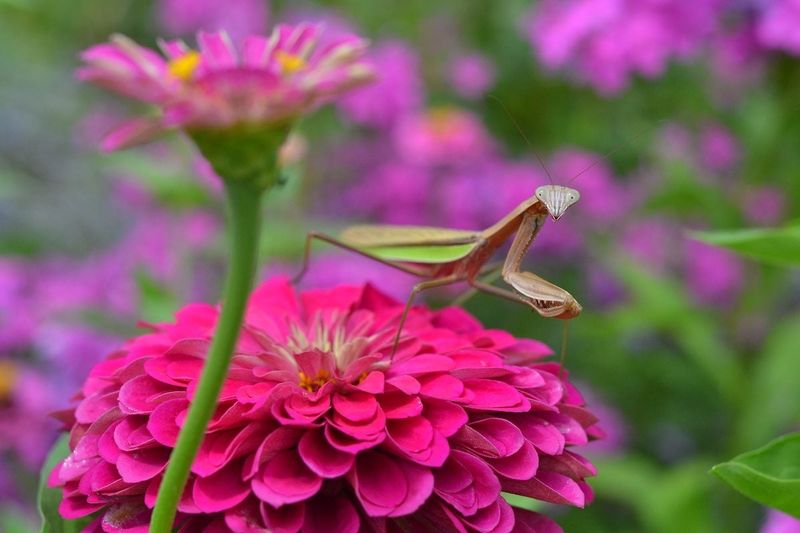
With their triangular heads and folded front legs, praying mantises look like visitors from another planet. These patient predators can remain motionless for hours before ambushing unsuspecting garden pests.
A single mantis devours dozens of harmful insects daily, including mosquitoes and flies. Some gardeners even purchase mantis egg cases to release these beneficial hunters! Their alien appearance hides their true identity: your garden’s natural pest management system.
Jerusalem Crickets: Underground Soil Engineers
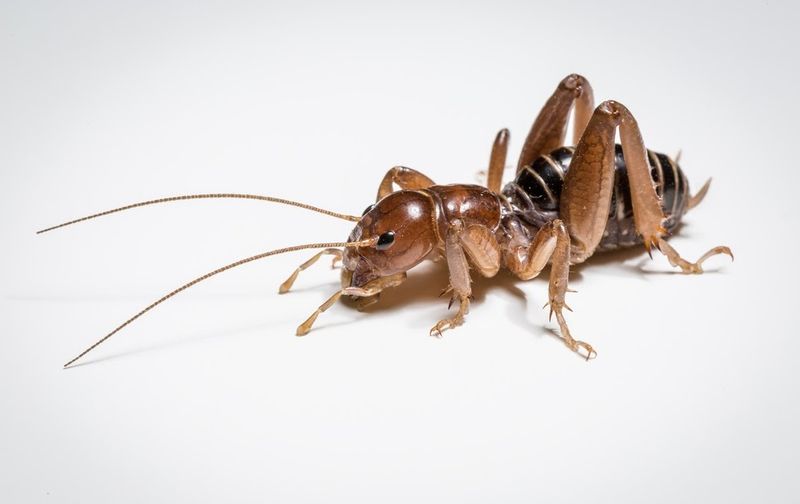
Finding a Jerusalem cricket (sometimes called potato bugs) can be startling with their large, human-like heads and robust bodies. Despite their intimidating size, these gentle giants don’t bite, sting, or damage crops.
Underground, they break down decaying plant material and aerate soil with their tunneling. This improves water penetration and root growth for your plants. Think of them as nature’s rototillers, working beneath the surface to enhance your garden’s health.
Cicada Killer Wasps: Gentle Giants With A Scary Name
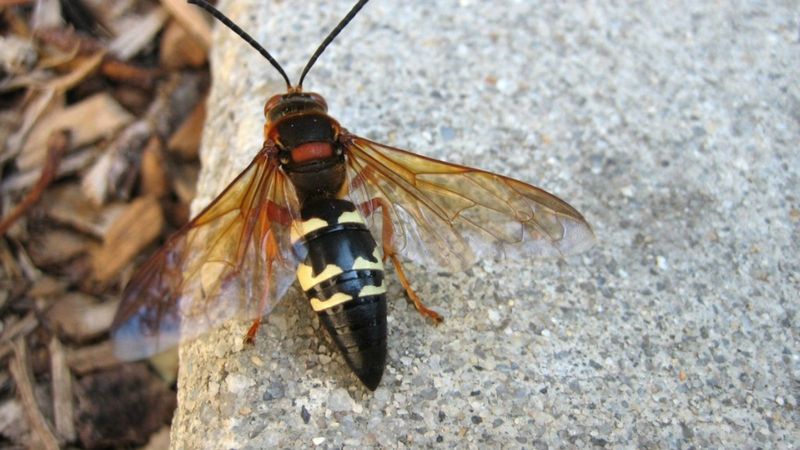
At nearly two inches long, cicada killer wasps might trigger instant panic. Despite their intimidating size and fearsome name, these wasps rarely sting humans unless directly handled. Males can’t even sting at all!
Their underground nesting creates natural soil aeration, improving drainage and root growth. Plus, they help control cicada populations, which can damage young trees. These misunderstood giants are actually gentle neighbors worth welcoming to your yard.
Ground Beetles: Midnight Pest Patrol
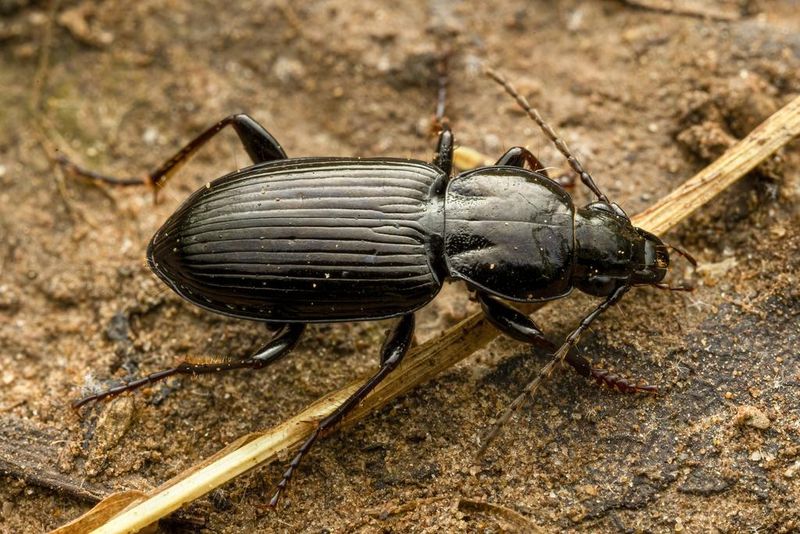
Flip over a garden stone at night and you might find shiny black ground beetles scurrying for cover. Don’t squish them! These nocturnal hunters consume their weight in garden pests every day.
Their menu includes slugs, snails, cutworms, and root maggots – many of the most destructive garden pests. Some species even climb plants to hunt for caterpillars and insect eggs. Your garden’s night security team works tirelessly while you sleep!
Robber Flies: Aerial Assassins In Disguise
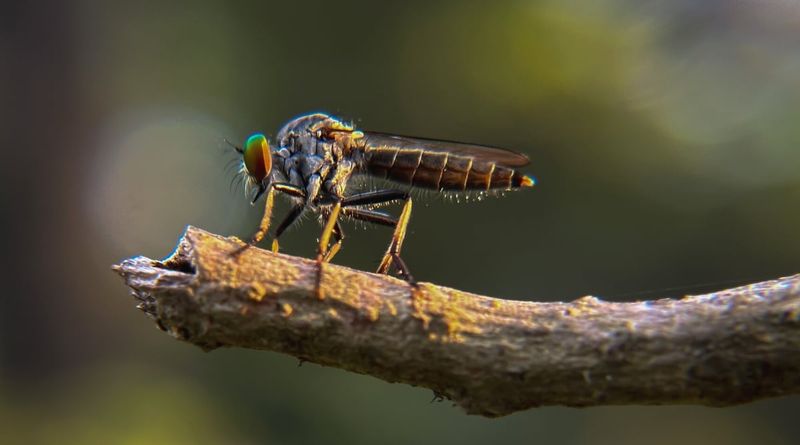
Resembling oversized mosquitoes with beards, robber flies trigger immediate swatting instincts. Hold that swat! These aerial predators actually hunt mosquitoes, along with wasps, beetles, and flies that damage crops.
Their lightning-fast interceptions of flying pests make them valuable allies. One robber fly can catch several dozen insects daily. While their appearance might be unsettling, their appetite for garden pests makes them welcome visitors to any backyard ecosystem.
Paper Wasps: Misunderstood Garden Guardians
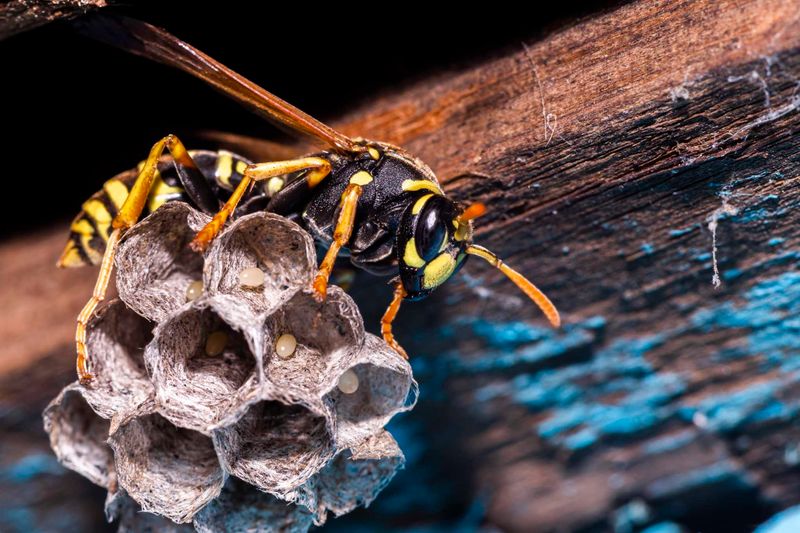
Finding a paper wasp nest under your eaves might send you running for insecticide. Resist that urge! These often-feared insects are actually valuable garden allies that hunt caterpillars and other leaf-munching pests.
A single paper wasp colony can protect your garden from thousands of caterpillars each season. They’re generally non-aggressive unless their nest is threatened. Simply give them space, and they’ll provide free, chemical-free pest management for your prized plants.

